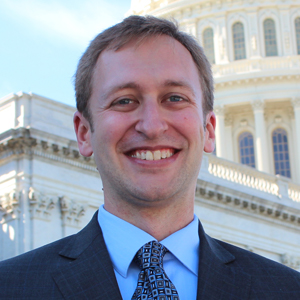The time for change is now
The U.S. biomedical research enterprise is riddled with systemic flaws that slow the progress of research. These flaws, and the disproportionate strain they put on different parts of the research workforce, have been put into stark relief during the COVID-19 pandemic. While it is understandable that most researchers want to find a way to return to some semblance of normal before considering reforms, that thinking is wrong.

The time for reform is now. Right now.
Returning to the status quo — ramping up research programs without significant policy changes — is an attempt to return to a system that worked for the privileged few. Now is the time to think critically about reforming departmental culture and enacting real, long-lasting reforms to make the research enterprise more just and equitable.
COVID-19 provides a window to consider reforms, and the research stoppage provides the space and time to implement them. Universities and departments should consider implementing long-term solutions to long-standing problems.
In late April, I convened a discussion series to delve into the systemic issues in biomedical research and how those issues were amplified by the pandemic. During four sessions, the 11 speakers talked about the challenge of trying to keep a research career going at a distance while caring for family members. Concerns about research evaluation, funding and career progression all figured prominently in their remarks. Just as prominent were concerns that departments and universities would fail to recognize and respect the disproportionate effects COVID-19 is having on the careers of women and people from underrepresented backgrounds.
From these discussions, I drafted a white paper listing 17 recommendations universities and departments should consider to enact long-term change.
For example, more than 300 universities have paused tenure clocks due to COVID-19. Rather than stop with this short-term change, they should take this opportunity to revise how they evaluate a researcher’s contributions to the university community, irrespective of the pandemic.
Similarly, departments should revise graduate admissions standards in a way that is broadly inclusive and applicable once the pandemic is behind us.
In the wake of the recent Black Lives Matter protests, universities made clear commitments to make their campuses more equitable and inclusive. These commitments are similar to previous performative commitments to equity and inclusion.
Only through intentional hiring, retention and promotion of BIPOC (Black, indigenous and people of color) scholars can universities actually live up to their commitments.
Departments should work immediately on how search committees will implement established protocols to prioritize hiring BIPOC postdocs into faculty positions once hiring freezes are lifted, and how they will revamp retention and promotion policies to value the typically underappreciated community service done by these faculty members.
Additionally, the pandemic and the Trump administration have pushed the scientific community to vocally defend foreign-born researchers working in the U.S. However, universities and departments could make real, beneficial reforms to demonstrate their commitment to nearly 50% of the biomedical trainee workforce by equalizing the pay of trainees regardless of national origin and enact policies that prevent faculty members from threatening a trainee’s visa status to extort labor.
These recommendations are forward-looking, and most are intended to make long-term positive changes. If the pandemic has convinced universities and departments to make accommodations for their current crop of trainees and faculty, then they have the space to make permanent changes as well.
The biomedical research enterprise was not perfect before COVID-19, but we have a chance to install a better system for all members of the biomedical research enterprise for years to come.
The opportunity is here. The time is now.
Enjoy reading ASBMB Today?
Become a member to receive the print edition four times a year and the digital edition monthly.
Learn moreGet the latest from ASBMB Today
Enter your email address, and we’ll send you a weekly email with recent articles, interviews and more.
Latest in Opinions
Opinions highlights or most popular articles

Sketching, scribbling and scicomm
Graduate student Ari Paiz describes how her love of science and art blend to make her an effective science communicator.

Embrace your neurodivergence and flourish in college
This guide offers practical advice on setting yourself up for success — learn how to leverage campus resources, work with professors and embrace your strengths.

Survival tools for a neurodivergent brain in academia
Working in academia is hard, and being neurodivergent makes it harder. Here are a few tools that may help, from a Ph.D. student with ADHD.

Hidden strengths of an autistic scientist
Navigating the world of scientific research as an autistic scientist comes with unique challenges —microaggressions, communication hurdles and the constant pressure to conform to social norms, postbaccalaureate student Taylor Stolberg writes.

Black excellence in biotech: Shaping the future of an industry
This Black History Month, we highlight the impact of DEI initiatives, trailblazing scientists and industry leaders working to create a more inclusive and scientific community. Discover how you can be part of the movement.

Attend ASBMB’s career and education fair
Attending the ASBMB career and education fair is a great way to explore new opportunities, make valuable connections and gain insights into potential career paths.

